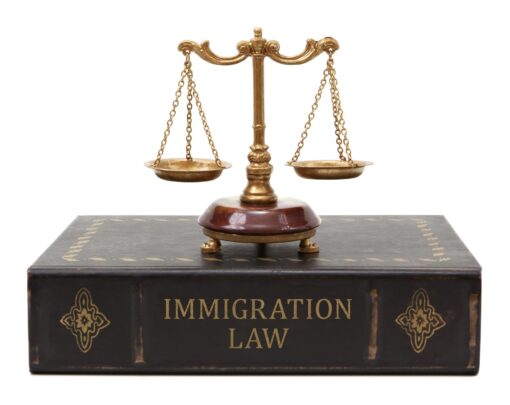
However, not all violations of federal immigration laws are tagged as criminal offenses. Read on to get more information on the specifics of federal immigration law. If you have been accused of an immigration-related offense contact Chambers Law Firm at 714-760-4088 for a free legal consultation.
Unpacking Immigration Offenses in California
California, like many other states, experiences a diverse range of charges and proceedings when it comes to immigration offenses. These include but are not limited to:
- Breach of immigration laws
- Convictions leading to deportations
- Convictions resulting in individuals being deemed inadmissible
The federal legislature has outlined definitions for inadmissibility and deportability under specific sections:
- 8 U.S.C. § 1182 – categorizes inadmissible aliens
- 8 U.S.C. § 1227 – categorizes deportable aliens
Individuals classified as inadmissible or deportable could face barriers in re-entering the United States or may face immediate removal from the country, respectively.
Delving into ‘Inadmissibility’ and ‘Deportability’
The notion of deportability implies that the actions of an individual warrant a return to their country of origin. On the other hand, inadmissibility entails:
- A prohibition on re-entry into the United States once exited
- An inability to attain U.S. citizenship
- A block on applying for permanent residence or adjusting existing immigration status
Immigration Law Violations Leading to Removal Proceedings
Deportation or a declaration of inadmissibility can arise from straightforward violations of immigration law. For instance:
- Illegitimate entry into the country as per 8 U.S.C. § 1325
- Misrepresentation of visa status
- Entry under a declaration of inadmissibility
- Fraudulent practices like marriage fraud to bypass immigration laws
- Aiding another individual in breaking immigration laws
One prevalent form of immigration crime is marriage fraud, where non-citizens enter into fraudulent marriages to dodge immigration laws and secure a green card. Such cases often attract federal investigation, and as per 8 U.S.C. § 1325(c), individuals engaging in marriage fraud can face up to 5 years in federal prison.
California’s Deportable Crimes Spectrum
In California, crimes warranting deportation encompass:
- Crimes of moral turpitude, which involve fraudulent acts, dishonesty, or harmful behavior like burglary, arson, or DUI.
- Aggravated felonies such as rape, child abuse, or murder.
- Controlled substances offenses, including sale, transport, or possession of controlled substances, particularly when armed.
- Firearms offenses, where illegal possession, sale, or attempt to conspire is proven.
- Domestic violence crimes covering domestic battery, child neglect, or violation of restraining orders.
Dissecting Crimes Leading to Inadmissibility
The crimes leading to inadmissibility largely mirror those leading to deportability. They cover moral turpitude, sex crimes, drug offenses, and multiple criminal convictions. The distinguishing factors include:
- Requirement of a conviction: Deportability needs a conviction, whereas inadmissibility can arise from mere admission to the crime.
- Recurrence or severity: Deportability demands either two convictions or one with severe legal penalties, unlike inadmissibility.
Conduct-based Grounds for Deportation or Inadmissibility
A formal conviction is not the sole basis for declaring someone inadmissible or deportable. Conduct-based grounds also play a crucial role. Such conduct encompasses prostitution, human and sex trafficking, drug trafficking, or drug addiction, and does not require a formal conviction.
The Procedure of a Removal Hearing
During a removal hearing, an immigration judge evaluates the case against the individual accused of violating immigration laws or committing a deportable or inadmissible crime. The hearing comprises:
- A chance for your attorney to present your case
- Scrutiny of the evidence against you
- Cross-examination of the prosecution’s witnesses by your attorney
Engaging the right attorney is a pivotal step towards a favorable outcome in your case. Reach out to Chambers Law Firm at 714-760-4088 for expert guidance on navigating federal immigration offenses.




